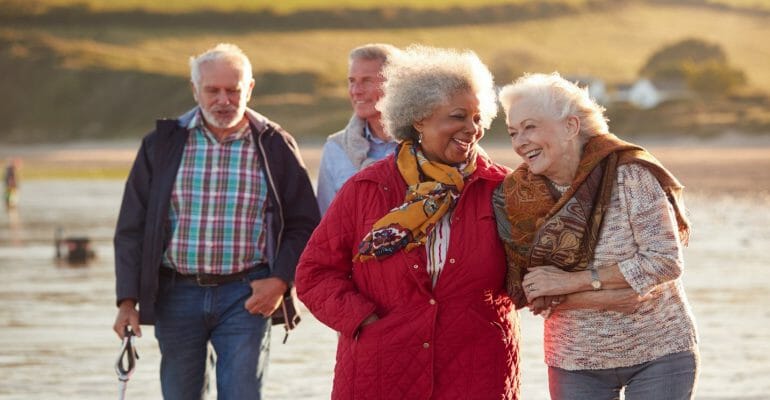ASSUMPTIONS ABOUT AGING
June 20, 2022 2023-09-18 21:22ASSUMPTIONS ABOUT AGING
It was recently my second daughter’s birthday, and as I posted some pictures of her on social media to commemorate the occasion, it occurred to me how old she is, and thus how quickly I am aging. I’ve heard a lot of scary sayings about old age over the years, and I’ve let myself be affected by some of them. A good example was when I tried to do a dance move that I saw my daughter do and failed; she laughed at me, and I told her, “I am not your mate you know, I am getting old,” to which she replied, “Mummy!, it’s not true, what will you say about grandma who is still very active?” It is simpler to blame age.
I’ve watched my mother age gracefully over the years, and I realized that the key to aging gracefully may simply be a change in lifestyle and healthy habits. So, what are some of these myths?
–The brain deteriorates with age, resulting in the inability to learn new things. How can this be true? Although there may be changes in thinking as a result of age, such as an inability to recall some names and a slower ability to find words, research has shown that older people have a more in-depth understanding of words than younger people, and they have a vast knowledge due to their greater wealth of experiences over the years. This also implies that they are capable of learning new skills and forming new memories. My mother, for example, recently learned how to write with her left hand despite the fact that she is not left-handed.
–Because of loneliness, older people are more likely to become depressed.
This is a point of view I’ve always held because, once the children are grown, they go their separate ways, leaving their elderly parents alone. This feeling has nothing to do with aging; in fact, as time passes, older people are known to belong to one group or the other, one meeting or the other, and they are able to engage in tasks that they were previously unable to do because they had to care for growing children. Some elderly parents, including their married children, are able to travel and visit places and people. Indeed, this is a very busy time for some elderly people, particularly socially. The exception will be if the person is both elderly and in poor health. According to research, older people are less likely to suffer from depression than younger people.
-Old people require less sleep.
They say that as you get older, your need for sleep decreases. If this assumption is correct, the idea of living a healthy lifestyle may be out of reach, because getting enough sleep is part of living a healthy lifestyle. The elderly require seven to nine hours of sleep per day. This keeps them healthy and smart.
-Dementia is common in the elderly.
On the contrary, not all elderly people suffer from dementia; they may occasionally forget things like misplacing a key, missing an appointment, and so on; this is normal forgetfulness with aging and has nothing to do with memory loss. There are many elderly people who remember a lot and have very sharp memories.
-Older people may sustain injuries if they engage in intense exercise.
I used to believe this until I saw a show on television called The Steve Harvey Show, and one of the episodes featured a seventy-year-old woman who happens to be a bodybuilder. I’ve also seen a program in which elderly people are forced to run a 100-meter race. These elderly people range in age from eighty to one hundred years. Exercise is important for older people’s mental and physical health.
-Only older women suffer from osteoporosis.
According to research, while older women are more prone to this bone condition, men and women lose bone mass at the same rate between the ages of 65 and 70. In other words, both elderly men and women must take their medications, especially if a particular disease runs in their family.
-It is impossible to quit smoking at an advanced age.
Smoking affects everyone the same way, young and old, so quitting smoking has the same effect on an elderly person’s health as it does on a younger person.
–Aged People should quit driving.
While it is true that aging causes changes such as poor eyesight and, in some cases, poor hearing, the question of when to stop driving should not be centered on one’s age because everyone ages differently. Even at the age of sixty to seventy, some people have good eyesight and are strong enough to drive.
When you think you’re getting old and worried about not being able to do what you used to do, remember the following saying:
“Ageing is just another word for living.” – Cindy Joseph
Sources
https://www.nia.nih.gov/health/10-myths-about-aging
 |
Author : Amiakhor Beatrice Ejaeta |























